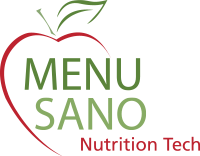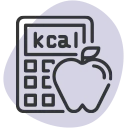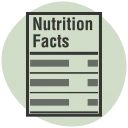Importing processed food and beverages into Canada can be a lucrative business opportunity, given the country’s diverse and multicultural population. However, navigating the complexities of Canadian import regulations requires careful planning and a thorough understanding of the legal requirements. This comprehensive guide will outline the essential steps and considerations to successfully import food into Canada.
Understanding Canadian Food Import Regulations
Regulatory Bodies and Frameworks
In Canada, the importation of food and beverages is regulated by several key bodies, each playing a vital role in ensuring food safety and compliance:
- Canadian Food Inspection Agency (CFIA): The CFIA oversees the safety and quality of food products entering the Canadian market. It enforces regulations in the Safe Food for Canadians Act (SFCA) and the Food and Drugs Act (FDA).
- Health Canada: This department is responsible for establishing policies and standards related to food safety and nutritional quality.
- Canada Border Services Agency (CBSA): The CBSA manages the movement of goods across Canadian borders, including food products, and ensures that all imported goods meet the required regulations.
Import Licensing and Permits
Before importing processed food and beverages into Canada, it is crucial to obtain the necessary licenses and permits:
- Safe Food for Canadians Regulations (SFCR): Most businesses importing food products must obtain an SFCR from the CFIA. This license ensures that the importer meets food safety requirements and complies with Canadian regulations. You must create an account on the CFIA website and initiate the procedure to obtain the license.
- Import Permits: Specific import permits may be required depending on the type of food product. Due to stricter regulations, dairy products, eggs, and meat often require additional permits.
Read more: Nutrition Labelling Requirements in Canada
Labelling and Packaging Requirements
Canadian food labelling regulations are stringent to ensure consumer safety and informed choices. Key labelling requirements include:
- Bilingual Labeling: Labels must be in English and French, Canada’s two official languages.
- Nutrition Facts Table (NFT): Most prepackaged foods require an NFT that provides detailed information about the nutritional content.
- Ingredient List: All ingredients must be listed in descending order based on their proportion by weight.
- Allergen Declarations: Mandatory declarations for common allergens such as peanuts, shellfish, and gluten-containing grains are required.
Additional requirements include Date Markings (Best Before date and Packaged On date), Storage instructions, Expiration date, Country of origin, and more. For the full list of requirements, we encourage you to visit the CFIA’s Food Labelling Requirements Checklist.
Compliant Labelling for Food Imports to Canada
At MenuSano, we understand the difficulties international manufacturers face as they venture into new markets. Our software streamlines the process of creating nutrition labels that adhere to the rigorous standards set by the Canadian Food Inspection Agency (CFIA).

Achieving Regulatory Compliance with MenuSano
Ensuring your nutrition labels meet the latest CFIA requirements is critical for any food business. MenuSano makes this process seamless by generating labels that comply with these regulations, including the necessity for bilingual labelling in both English and French. This feature helps businesses avoid the pitfalls of non-compliance and potential penalties.
A User-Friendly Interface Designed for Efficiency
MenuSano’s intuitive interface simplifies the task of creating nutrition labels. Users can easily input product data, and the platform handles everything from calculating nutritional content to formatting the labels. This user-centric design ensures that even those without technical expertise can generate professional-quality nutrition labels with ease.
Read more: Front-of-Package Labelling in Canada – Now Available on MenuSano
Cost-Effective Solutions for Your Business
Traditional laboratory nutritional analysis can be costly, but MenuSano offers a more affordable alternative. Businesses can significantly reduce their expenses by automating nutritional analysis and label generation.
Flexibility to Keep Your Labels Accurate
One of MenuSano’s standout features is its flexibility. You can update your information anytime as your product ingredients or nutritional content changes. This ensures that your labels are always accurate and up-to-date, providing consumers with the most current nutritional information.
Access Your Labels Anytime, Anywhere
MenuSano’s cloud-based platform offers unparalleled convenience. Users can access their accounts and generate or update labels anywhere, anytime. This 24/7 availability ensures you can manage your labelling needs on schedule without geographic or time constraints.
Read more: Food Safety Regulations: A Guide for Food Manufacturers
Ensuring Success in Canada’s Processed Food & Beverage Market
Importing processed food and beverages into Canada offers significant opportunities but requires careful navigation of the country’s stringent regulations. Food manufacturers can successfully enter the Canadian market by understanding the roles of key regulatory bodies, securing the necessary licenses and permits, and ensuring compliance with labelling and packaging requirements. Softwares like MenuSano simplify the compliance process, making it easier for companies to create accurate, regulation-compliant labels. Embracing these practices not only helps avoid legal pitfalls but also positions businesses for long-term success in a diverse and thriving market. With the proper preparation and resources, you can tap into Canada’s dynamic food industry and achieve sustainable growth.



















